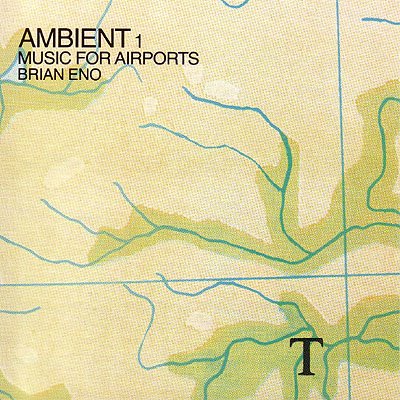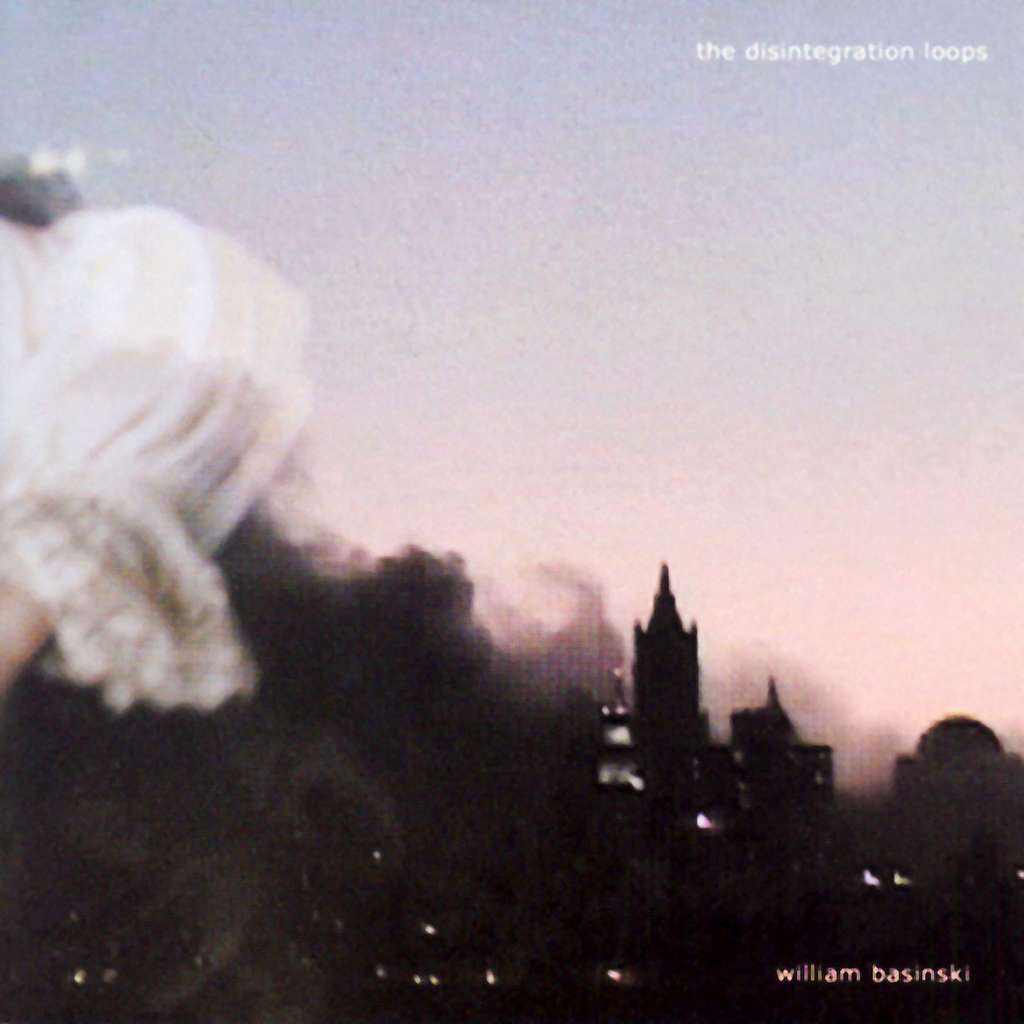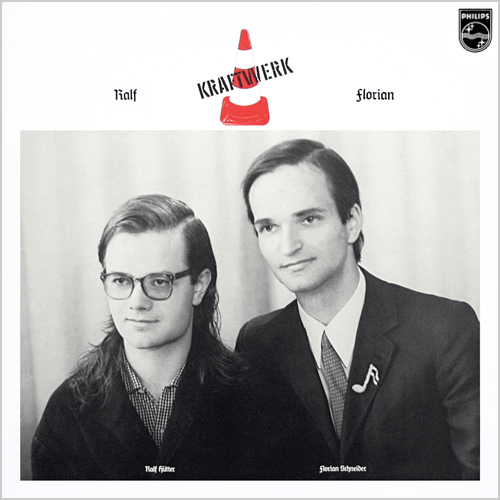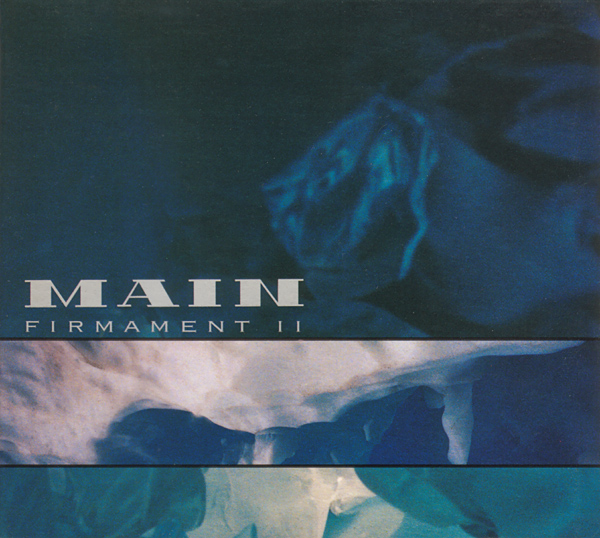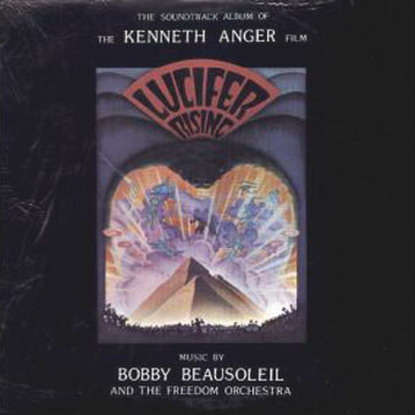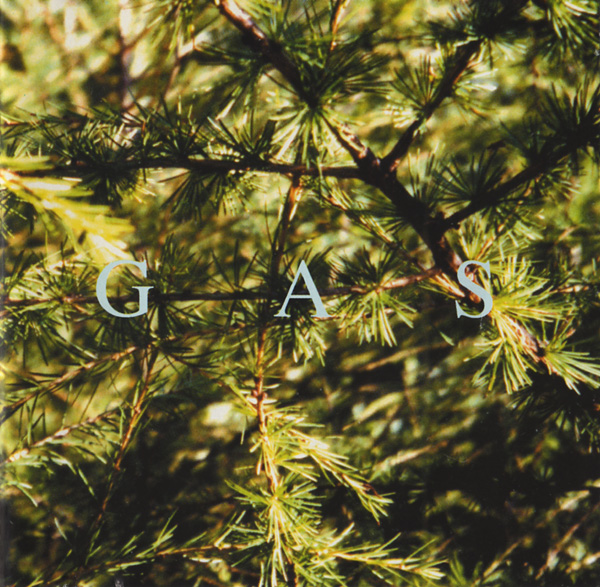Words: Tony Marcus
First published in FACT:26 (June/July 2008)
It’s a heavy, theoretical space to think about the relationship between music and silence, sound and thought and feeling. And there’s a conceptual glamour about music so quiet that it might fade into but also enhance background noise.
If you call this ‘ambient’ then you might best begin with Brian Eno and the liner notes for his LP Music for Airports, written in 1978 [though his first liner note reference to ambient was in 1975’s Discreet Music]. Eno was particularly keen to note the differences between his ambient music (calming and provocative) and elevator music or ‘muzak’.
Right now, actual ‘muzak’ or elevator music is so hard to find that it would probably sound interesting if you did. Perhaps in 1978 it was something that needed to be opposed. It’s interesting that Eno’s ambient has a punk/post-punk date, and the very starkness and self-discipline of some of his (and others’) ambient LPs give them an affinity with the stark punk/post-punk of Magazine, Gang of Four et al.
The word ‘ambient’ comes from the Latin and means ‘going about’ – from ‘iens’ going, and ‘ambi’, about. Which doesn’t say ‘peaceful’ or ‘beautiful’ or ‘relaxing’. It just says ‘going about’. Which suggests what? Present? In motion? And sort of ‘just there’ like a gas or perfume, molecules that diffuse in the air?
It’s interesting that Eno’s use of the word ‘ambient’ has also been adopted (by writers and DJs, compilers of LPs, etc) to claim that records made before 1978 were also ‘ambient’. The genre reached backwards through history to claim the classical minimalism of Erik Satie and Arvo Pärt, the post-industrial noise of Coil and Boyd Rice, certain late-‘60s records and certain early to mid-‘70s Krautrock records. Just as the word ‘punk’ reached back to claim MC5 and Iggy – perhaps a true or seductive or potent genre will always travel in time.
I often get trapped in thinking that ambient music has to be plaintive and melancholy. Does ambient have to be melancholy? Not necessarily, but it happens. Quiet music that creates space for meditation and memory might also make us sad or melancholic. But it doesn’t have to be that way – the purest meditations (if you read ancient Indian and pre-Buddhist texts) are about going beyond memory, rather than indulging it.
BRIAN ENO
AMBIENT 1: MUSIC FOR AIRPORTS
(EG, 1978)
The LP of angelic breath, whose killer tracks are minimal and layered choral tones that owe something to the classical works of [Arvo] Pärt. An ‘important’ record, a line in the sand, and what a concept; it seems to speak to, soundtrack (and perhaps critique) the modern world.
See also:
Brian Eno – Discreet Music (EG, 1975)
Harold Budd & Brian Eno – Ambient 2: The Plateaux of Mirrors (EG, 1980)
Arvo Pärt – Alina (ECM, 1999)
POLE
POLE 3
(MATADOR, 2000)
Fractured electronic dub that seems to have been formed from the outlines and after-images of sounds, from the surges and traces they leave behind on echo or delay units. Pole also uses vinyl hiss and cracks and tracks which contrast beautifully with the ‘warmer’ dub moves. [3, alongside its predecessors 1 and 2, is now available s a 3xCD package, 123].
See also:
Pole – Pole 2 (Matador, 1999)
Vladislav Delay – Multila (Chain Reaction, 2000)
VA – Folds and Rhizomes For Gilles Deleuze (Sub Rosa, 1995)
WILLIAM BASINSKI
THE DISINTEGRATION LOOPS
(2062, 2002)
Basinski says this was made from repeatedly copying old audio tapes (of his own music) until the sound ‘disintegrated’. And you get to hear the process as simple, delicate loops decay to fainter and shadowy works.
See also:
William Basinski – Shortwave Music (Raster-Noton, 1998)
Philip Jeck – Sand (Touch, 2008)
GAS – Königsforst (Mille Plateaux, 1998)
CLUSTER & ENO
CLUSTER AND ENO
(SKY RECORDS, 1977)
An ‘important’ record because it’s the meeting place between Eno and the Cosmic Krauts. Where the second Cluster LP is ‘important’ for its dark loops and drones, this pre-figures most of Eno’s later, melodic ambient strategies. And like Aphex’s first LP, the tracks have the lyricism of songs.
See also:
Brian Eno – Ambient 4: On Land (EG, 1982)
Harmonia & Eno – Harmonia & Eno ’76 (Grönland, 2010)
Cluster – II (Brain, 1972)
APHEX TWIN
SELECTED AMBIENT WORKS II
(WARP, 1994)
The first Ambient Works is sweeter but this second LP, which is longer – a two CD set – is darker, stranger and harder to negotiate. Tracks often seem to dissolve as you listen to them – they are not easy to fix in the mind – they are spooky, unravelling textures.
See also:
Aphex Twin – Selected Ambient Works 85-92 (R&S, 1992)
Kevin Drumm – Imperial Distortion (Hospital Productions, 2008)
Nurse With Wound – Soliloquy For Lilith (Idle Hole Records, 1988)
YOUNG MARBLE GIANTS
COLOSSAL YOUTH
(ROUGH TRADE, 1980)
It was either this or Durutti Column from the post-punk period and YMG win as vocal-song-oriented music so stark and truncated it embraces a silence and texture we know as ‘ambient’. Alison Statton’s flat vocals, stark guitar and basic synth are exquisitely bleak – the LP feels like it was recorded in Communist East Berlin.
See also:
Cocteau Twins – Head Over Heels (4AD, 1983)
Wire – 154 (Harvest, 1979)
Gareth Williams & Marie Currie – Flaming Tunes (self-released, 1985)
ASH RA TEMPEL / MANUEL GÖTTSCHING
INVENTIONS FOR ELECTRIC GUITAR
(KOSMISCHE MUSIK, 1975)
Almost impossible to pick the most beautiful Ash Ra LP – you need this and ‘Schingungen’ and E2-E4 because Manuel Göttsching makes the softest psychedelia. But the circling, minimal guitar on this LP reinvents the instrument as a mantra-delay machine.
See also:
Manuel Göttsching – E2-E4 (Inteam GmbH, 1984) buy
Ash Ra Tempel – New Age of Earth (RCA, 1976)
Tortoise – TNT (Thrill Jockey, 1998)
THE ORB
THE ORB’S ADVENTURES BEYOND THE ULTRAWORLD
(BIG LIFE, 1991)
‘Little Fluffy Clouds’ is irritating and certain beats are dull but when the LP reaches ‘Back Side of the Moon’ it opens, colossal, fresh space. And the astral jazz of ‘Spanish Castles In Space’ is often missed in the fetish for The Orb’s stoned NASA-isms.
See also:
Steve Reich / Pat Metheny – Electric Counterpoint (Nonesuch, 1989)
Killing Joke ‘Requiem (A Floating Leaf Always Reaches The Sea Dub Mix)’ (EG, 1992)
Deepchord presents Echospace – The Coldest Season (Modern Love, 2007)
KRAFTWERK
RALF AND FLORIAN
(PHILIPS/VERTIGO, 1973)
This sits halfway between LSD-fried Kraut prog and the refined minimal art of classic Kraftwerk. They bring a weightless grace to heavier ’70s aesthetic – the sound of clean, modern air blowing out the late ‘60s/early-70s templates.
See also:
Kraftwerk – Kraftwerk (Philips, 1970)
Kraftwerk – Kraftwerk 2 (Philips, 1971)
Can – Future Days (United Artists, 1974)
MAIN
FIRMAMENT II
(BEGGARS BANQUET, 1994)
Just two tracks on the LP, apparently made from guitars plus filters and pedals, although the sound is hard to source or account for. His records have been described as ‘unknown negative space’ – volume levels rise and fall; textures change unpredictably – and like Pole there is a sense of fragmented delays and reversed exposures.
See also:
Lull – Cold Summer (Sentrax, 1994)
Main – Motion Pool (Beggars Banquet, 1994)
My Bloody Valentine – Loveless (Creation, 1991)
BOBBY BEAUSOLEIL & THE FREEDOM ORCHESTRA
LUCIFER RISING OST
(LETHAL RECORDS / MAGICK THEATRE PRODUCTIONS, 2005)
Recorded in jail while Beausoleil was serving life for what was allegedly the first of the Manson killings. The soundtrack to Kenneth Anger’s occult epic, this matches psychedelic LSD freakout with drones, echoes and treated guitars that sound like they were recorded at the centre of the Earth. There are also moments of exquisite delicacy. Beausoleil is still in jail in the US.
See also:
Ghedalia Tazartes – Diasporas (Cobalt, 1979)
A.R. & Machines – Echo (Polydor, 1972)
Spacecraft – Paradox (Not on label, 1978)
GLOBAL COMMUNICATION
76:14
(DEDICATED, 1994)
The high watermark of an early-90s sensibility – there are similar LPs from Boards of Canada and FSOL – all layered, complex, pretty and sci-fi. It’s computer-organised psychedelia: utterly precise and fractal clean. If this had been released on a bigger record label it would have been multi, multi-platinum.
See also:
Tangerine Dream – ‘Love On A Real Train’, from Risky Business OST (Virgin, 1984)
Global Communication – Blood Music: Pentamerous Metamorphosis (Dedicated, 1993)
Global Communication – ‘Maiden Voyage’ (Dedicated 12″, 1994)
PSYCHE/BFC
ELEMENTS
(PLANET E, 1996)
A collection of the early, 1989-1990 Carl Craig tracks. There is rhythm – some breaks and early Detroit beats – but the overall feel is tranquilised sci-fi; that narcoleptic, interior techno. And the LP ends with someone (perhaps Carl) exhaling, almost snoring over a Tomita-like ambience.
See also:
Carl Craig – More Songs About Food & Revolutionary Art (Planet E, 1997)
System 7 – ‘Sirenes (System 7.1)’ (Butterfly Records, 1994)
Delia Gonzalez & Gavin Russom – Days of Mars (DFA, 2005)
BIRDS AND SOUNDS OF THE COUNTRYSIDE: RECORDED AND PRODUCED BY ERIC SIMMS
(BBC RECORDS, 1970)
Organised by season with a tracklist that includes ‘A Summer Woodland Dawn Chorus (Suffolk 1953)’ and ‘Hooded Crow and Geese on a Windswept Moor (Kinross, 1955)’. The BBC field/ambient series is huge – Railways Remembered and British Mammals and Amphibians are also great.
See also:
Virginia Astley – From Gardens Where We Feel Secure (Rough Trade, 1983)
Chris Watson – ‘Wild Song At Dawn’ (FACT, 2007)
John Cameron – Kes (Trunk, 2001)
KLF
CHILL OUT
(KLF COMMUNICATIONS, 1990)
This is really part of The Orb’s Ultraworld – both LPs were born in the same Patterson/Cauty mix sessions – this is more amorphous, more about samples, suggestion and memory; a post-Ecstasy drift through interior landscape.
See also:
Space – Space (KLF Communications, 1990)
The Orb – Aubrey Mixes: The Ultraworld Excursions (Big Life, 1991)
The KLF – ‘Madrugada Eterna’ 12″ (KLF Communications, 1990)
LARAAJI PRODUCED BY BRIAN ENO
AMBIENT 3: DAY OF RADIANCE
(EG, 1980)
This has a very different feel from the other ambient LPs – it’s more like world music or meditation music. Laraaji is playing what sounds like the harp but is zither and dulcimer. Eno slows the tapes, extends the decay rate – he maximises the sense of shimmer.
See also:
Roland P. Young – Istet Serenade (EM, 2009)
John Hassell – Fourth World Vol. 1: Possible Musics (EG, 1980)
Nusrat Fateh Ali Khan – Musst Musst (Real World, 1990)
GAS
POP
(MILLE PLATEAUX, 2000)
Post-Basic Channel with tracks that sound like sheets of muted industrial texture. The one cut that has a house/techno pulse suggests the entire LP is rooted in intense ‘head blown off’ MDMA culture.
See also:
GAS – Zauberberg (Mille Plateaux, 1997) buy
Basic Channel – BCD (Basic Channel, 1995) buy
Love Inc. – Life’s A Gas (Force Inc. Music Works, 1990)
BRIAN ENO WITH ROGER ENO & DANIEL LANOIS
APOLLO ATMOSPHERES AND SOUNDTRACKS
(EG, 1983)
Possibly the first LP to put country and western into ‘space’ – Eno’s rationale being the NASA space mission relating America’s love of frontiers. The LP features the most plaintive of all Eno’s ambient tracks, ‘An Ending (Ascent)’ – which sounds like a template for Aphex’s Selected Ambient Works II.
See also:
Ennio Morricone – Film Music 1966-1987 (Virgin, 1987)
Harold Budd, Brian Eno & Daniel Lanois – The Pearl (EG, 1984)
The Durutti Column – Vini Reilly (Factory, 1984)
IRRESTISTIBLE FORCE
FLYING HIGH
(RISING HIGH, 1992)
Acid lines and wacky, plastic electronics that pay homage to Subotnick and Jean-Jacques Perrey, Flying High sort of ‘plinks’. The track ‘Symphony on E’ is great with Joyce Grenfell samples for one more riff on Albion’n’drugs.
See also:
William Orbit – Strange Cargo (IRS, 1990)
Ulrich Schnauss – Far Away Trains Passing By (City Centre Offices, 2001) buy
The Orb – Peel Sessions (BBC, 1996)
THE CARETAKER
A STAIRWAY TO THE STARS
(V/VM TEST RECORDS, 2001)
The entire LP is built from old 78s and 1920s dance records narcotized and bathed in hiss and gloom until they feel like a scene from The Shining (the one where Jack meets bartender Lloyd). It also carries a Weimar melancholia – a record of haunted, European ballrooms.
See also:
Gavin Bryars, Philip Jeck & Alter Ego – The Sinking of The Titanic (Touch, 2007)
Kreng – L’Autopsie Phénoménale De Dieu (Miasmah, 2009)
Burial – Burial (Hyperdub, 2006)
Tony Marcus
First published in FACT:26 (June/July 2008)
